Of what nature are your relationships? Are you surrounding yourself with people who will help you become the best version of yourself?
We become the average of the five people we spend the most time with. (Tim Ferriss)
Most of us are codependent in relationships, meaning we are dependent on the other individual. This type of relationship stops us from overcoming our mental and emotional barriers and limits our ability to act. This is what Karpman defined as the drama triangle. Let us take a look at this triangle. The model describes three roles:
- The victim, who thinks “poor me” and cannot find solutions to the problems they are faced with. The victim tends to avoid responsibility because they believe they have no control over their situation. This prevents them from making decisions, solving problems and achieving their life goals.
- The persecutor, who believes everyone else is incompetent. Their actions reflect their belief that only they are right. They use blame, criticism and oppression to try to gain control over others.
- The rescuer, who thinks “poor little thing” and ends up intervening to save the victim from the damage inflicted by the persecutor. The way the rescuer intervenes is important here – they intervene to help the victim solve their problems.
You probably identify most with only one of these roles, but it is important to understand that this drama triangle only exists because we, as individuals, shift between roles.
All three roles act the way they do out of fear.
The victim is scared of life. The persecutor is scared of losing control. The rescuer is scared of not having a purpose. They all act to avoid the negative feelings created by fear.
Also important is that persecutors and rescuers do not have to be people. They can also be a situation or a condition. A persecutor may also be a divorce or illness. Rescuers may also take on the form of an addiction, as in alcohol or work.
If you think about it, it is obvious that our relationships tend to be of the dependent nature. These roles are present everywhere. However, there is, of course, also a world that does not contain such drama. David Emerald came up with the solution and called it The Empowerment Dynamic.
We must first realise that the drama triangle revolves around the victim. The victim needs a persecutor and a rescuer. So, if the victim stops being a victim, the triangle no longer works.
- The victim becomes a creator, takes responsibility for their life into their own hands, makes decisions and starts creating their own reality. How do they switch roles? By thinking about what gives their life meaning, by recalling why they are doing something (the long term) and paying more attention to this than to the problems themselves (usually short term).
- The persecutor becomes a challenger, someone or something that is there to teach the victim something that they needed to learn. The victim no longer hands over control, no longer allowing the other to hinder them. Now the victim sees the presence of the other as a challenge to take on that will make them stronger.
- The rescuer becomes a coach, someone that helps the victim develop and grow as a person. The victim no longer hands over control, no longer allowing the other to solve their problems. Now the victim lets the other give them advice, without depending on them and maintaining their new role as the decision maker.
We must only take three steps to break free from codependent relationships and build interdependent relationships.
- Be completely honest with yourself and observe which roles in the drama triangle you take on.
- Make a list of the persecutors in your life and write down everything they have done to you that has made you feel bad and why you are their victim (think “poor me”).
- When you are ready, (this could be the same day, in two weeks, or whenever you feel ready), take a look at your list of persecutors and think about what you have learned from them, or what you could learn from them.
The type of relationships we build influence our lives as well as the projects we work on. Our aim should be to build interdependent relationships, in which the two sides are independent and the individual is actively creating their own reality.
Because only when we play a more responsible role and make decisions that are in line with our values, will we be able to develop a project that reflects the best in us and feel free.
And it is difficult, if not impossible, to develop a project that reflects the best in us if we are surrounded by “drama”.
If your associates, employees, partners, or even your friends or other people you spend time with feel comfortable in an environment in which nobody depends on the other, in which every individual assumes responsibility and does so willingly because they love what they do, you will be able to achieve your goals.
You will be building win-win relationships, as both parties will see the benefits of investing time and energy, not only because the relationship helps them achieve their own goals, but also because it turns into a source of continuous learning. I am talking about building empowered, genuine and fun relationships.
It’s your decision. What type of relationships would you like to build?


